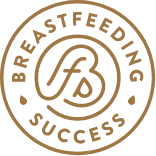By Ali Weatherford
I love to learn about nutrition. During pregnancy, I was SO careful about what I ate, and it was easy because I had constant morning sickness and no terrible cravings anyway. No food sounded good, so I might as well eat healthy, right? Once my baby was born though, I got HUNGRY again! I ate a lot of everything. My choices weren’t all bad, but I wasn’t especially careful either, and I wasn’t worried about it. I wasn’t pregnant anymore, so no worries about the baby’s health, right?
But what about breastfeeding?
There may actually be concerns about nutrition during breastfeeding. A lot of people want to know how they’re supposed to eat for the best breast milk quality and supply. Is there anything that nutrition can actually help with though?
The answer is a little ambiguous. It’s actually hard to find any research in support of a particular kind of food being especially good for milk supply and milk quality.
This is probably a good thing from a broader evolutionary perspective. Your body is designed to protect your milk supply at all costs. Even if you were to experience a famine and find very little to eat at all, your breast milk production would probably continue for at least some amount of time. Your body will use its reserves to protect that milk supply, which of course protects the baby.
So can I eat anything I want?
Just because your milk supply and quality might not be all that affected by your nutritional choices, it can definitely make a difference in other areas. Poor nutrition makes people feel less great. You might not have much energy, or you might be especially irritable. You could have more trouble sleeping. As a brand new parent, you can definitely benefit from feeling your best, and nutrition is a great way to get there.
Your energy levels and the way you feel can definitely affect how much you’re able to breastfeed. When your body is well-fueled, you will have more energy, you can get better sleep, and you can feel more motivated to continue breastfeeding as often as you need to ensure a great milk supply, even when that means waking up often and patiently sitting through cluster feeding days.
What about the baby?
You may have plenty of good quality milk, but there are things that can affect your baby.
For example:
- Be careful with caffeine. Caffeine does get into your breast milk, but if you’re having a moderate amount, it shouldn’t be enough to affect your baby. If you drink caffeine excessively though, it could have an impact. Your baby might get irritable, fussy, jittery, or wakeful. Some babies are more sensitive to it, so be aware of your baby’s behavior related to your caffeine intake. Also, consuming more than 450mg of caffeine a day (4-5 cups) can lower the iron levels in your breast milk. Babies get the iron they need from breast milk until they can eat solid foods, and this is a very important nutrient for their development.
- Allergenic foods. Some babies are sensitive to certain things you eat that will be transported through the breast milk. For example, while rare, some babies are allergic to dairy. Your breast milk is not the problem, but when you eat dairy, the babies can show some pretty obvious signs. They may have colic, abdominal discomfort, or a skin rash. They may even vomit and have bloody diarrhea or difficulty breathing. This can be serious, and it’s important to contact your pediatrician quickly if you notice some of the symptoms. Luckily, removing dairy from your diet while you’re breastfeeding can prevent it from continuing. And if either parent or a sibling has a history of severe food allergies, it might make sense to pay close attention to what you eat and how your baby responds after their next feeding.
Nutrition for postpartum recovery
- Even though your breast milk supply might not be all that sensitive to what you eat, there are other big things going on in a postpartum body! As your body recovers from pregnancy and birth, it’s very important to nourish it well. Good nutrition can go a long way in helping with digestion, postpartum bleeding, mood swings, and energy levels. These are all areas of struggle in postpartum recovery.
- Your uterus is shrinking and moving, and your other organs are shifting back into a more normal configuration while this happens. Digestion, bowel movements, and urination can be affected by this transition. When you eat well and stay well hydrated, it helps.
- You experience a large decrease in certain hormones after birth and it can take some time for them to be more balanced. You may feel down or sad. You might get irritable. You might have trouble sleeping and have low energy levels. You may feel more anxious. You may not be able to “fix” all of these symptoms by eating well, but you can definitely ensure that you’re not making things worse, and really good nutrition can take the edge off for sure.
- Postpartum vaginal bleeding can be very heavy for a few days, and then can take several more weeks to taper off and end completely. Most people stop bleeding by six weeks. You’ll want to make sure you’re getting all the nutrients you can from your food and plenty of hydration to make sure the blood loss has minimal effect on your health and the way you feel.
Iron
It’s important to maintain good blood iron levels for a couple of reasons. When you’re having prolonged vaginal bleeding, it can cause your iron levels to drop. It’s also important that your baby has good iron levels, and that comes from your breast milk. If your iron levels get low, your baby gets less. These are some foods that are high in iron.
- Heme Iron is always best absorbed. That means iron from animal sources. And these sources provide the highest iron content:
- Shellfish such as clams come in highest by far!
- Then it’s organ meat. That’s right, liver, hearts, and kidneys.
- After that, red meat.
- Chicken thigh
- Salmon
- Vegetable sources or NON-heme iron are MUCH lower in iron content and less absorbable, but you can get some extra iron from:
- Unsweetened cocoa powder
- Natto
- Cashews
- Cooked spinach
- Tahini
- Cooked beans
- Firm tofu
- Broccoli
You might add some of this into your rotation, and some people still need supplementation, so be sure to get advice from your provider if you’re having any symptoms of iron-deficiency anemia such as:
- Being pale or having yellow “sallow” skin
- Unexplained fatigue or lack of energy
- Shortness of breath or chest pain, especially with activity
- Unexplained generalized weakness
- Rapid heartbeat
- Pounding or “whooshing” in the ears
- Headache, especially with activity
- Craving for ice or clay – “picophagia”
- Sore or smooth tongue
- Brittle nails or hair loss
You can NEVER go wrong by having good nutrition. You’ll look better, feel better, heal and recover better, and you may even ensure that you are providing the very best breast milk possible. I like to think of good nutrition as the ultimate self-care. It does take some time and effort to eat well, but the pay off is big. You deserve it!
References
https://www.ncbi.nlm.nih.gov/books/NBK501467/
https://www.hematology.org/education/patients/anemia/iron-deficiency

